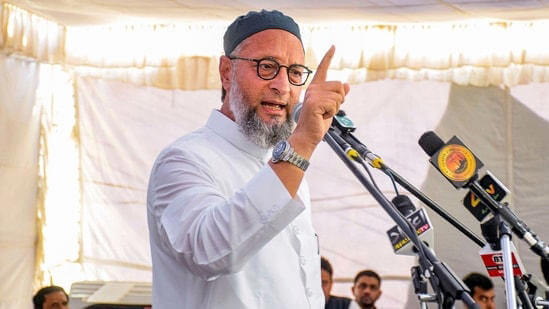AIMIM's manifesto: Restoring glory of Mumbai,free water and electricity to poor
Tue 14 Feb 2017, 13:48:49

The All India Majlis-e-Ittehadul Muslimeen (AIMIM) on Saturday came out with its party’s manifesto. With 40 promises, the manifesto was a list of promises and what it said would “compel” the state government to do. Among the first ones were “restoration of pristine glory of Mumbai and preservation and protection of its rich heritage” for which the party will also look to have a separate urban development authority for redevelopment of Old Mumbai (Island City).
Most of its promises in the manifesto, the party said, will be achieved by “compelling” the state government. Other promises that are a mix of populist promises and schemes include free supply of water and electricity to the poor households, replicating some mineral water (reverse osmosis water treatment) plants in slums, breakfast and lunch for poor at Rs 5, providing protection to illegal hawkers, earmarking land for Muslim graveyards and securing WAKF lands.
That apart, the party said that it will focus on cleaning of garbage, relocation of Deonar dumpyard, completion of water supply projects, opening skill development, professional development and
vocational courses in BMC schools, earmarking 20 percent of the BMC’s annual budget for education and employment schemes, steps to ensure weaker sections and minorities, especially Muslims, in the government service, particularly the police forces, construction of an Urdu Bhavan, alongwith Marathi Bhavan, for conduct of cultural and literary events in the city and ensuring better coordination between agencies.
vocational courses in BMC schools, earmarking 20 percent of the BMC’s annual budget for education and employment schemes, steps to ensure weaker sections and minorities, especially Muslims, in the government service, particularly the police forces, construction of an Urdu Bhavan, alongwith Marathi Bhavan, for conduct of cultural and literary events in the city and ensuring better coordination between agencies.
Surprisingly, nowhere did the party mention the demand of Rs 7,000 crore for Muslim pockets that Owaisi mentioned in his first speech. Also missing was a separate mention for Dalits, on whose basis the party is seeking a larger vote share and claiming itself to be secular by having candidates of the community in the fray.Waris Pathan, party MLA said, "The promise for Rs 7,000 crore was already stated in the meeting. This is not our manifesto for it to be in it. It is a 40-point program which all our corporators will be implementing. The program is for all and we believe in a practical approach and will work for the under-privileged who have been neglected so far."
No Comments For This Post, Be first to write a Comment.
Most viewed from AIMIM
AIMIM News
Latest Urdu News
Most Viewed
May 26, 2020
Can Lionel Messi's visit boost Indian football?
Latest Videos View All
Like Us
Home
About Us
Advertise With Us
All Polls
Epaper Archives
Privacy Policy
Contact Us
Download Etemaad App
© 2026 Etemaad Daily News, All Rights Reserved.

















.jpg)
.jpg)
.jpg)


